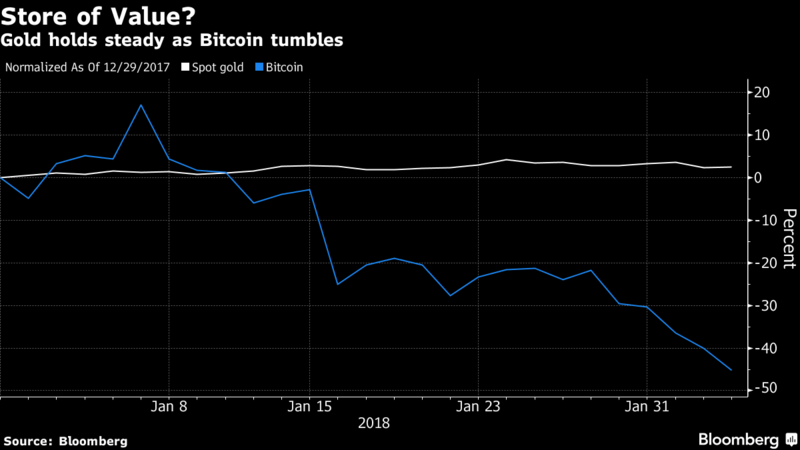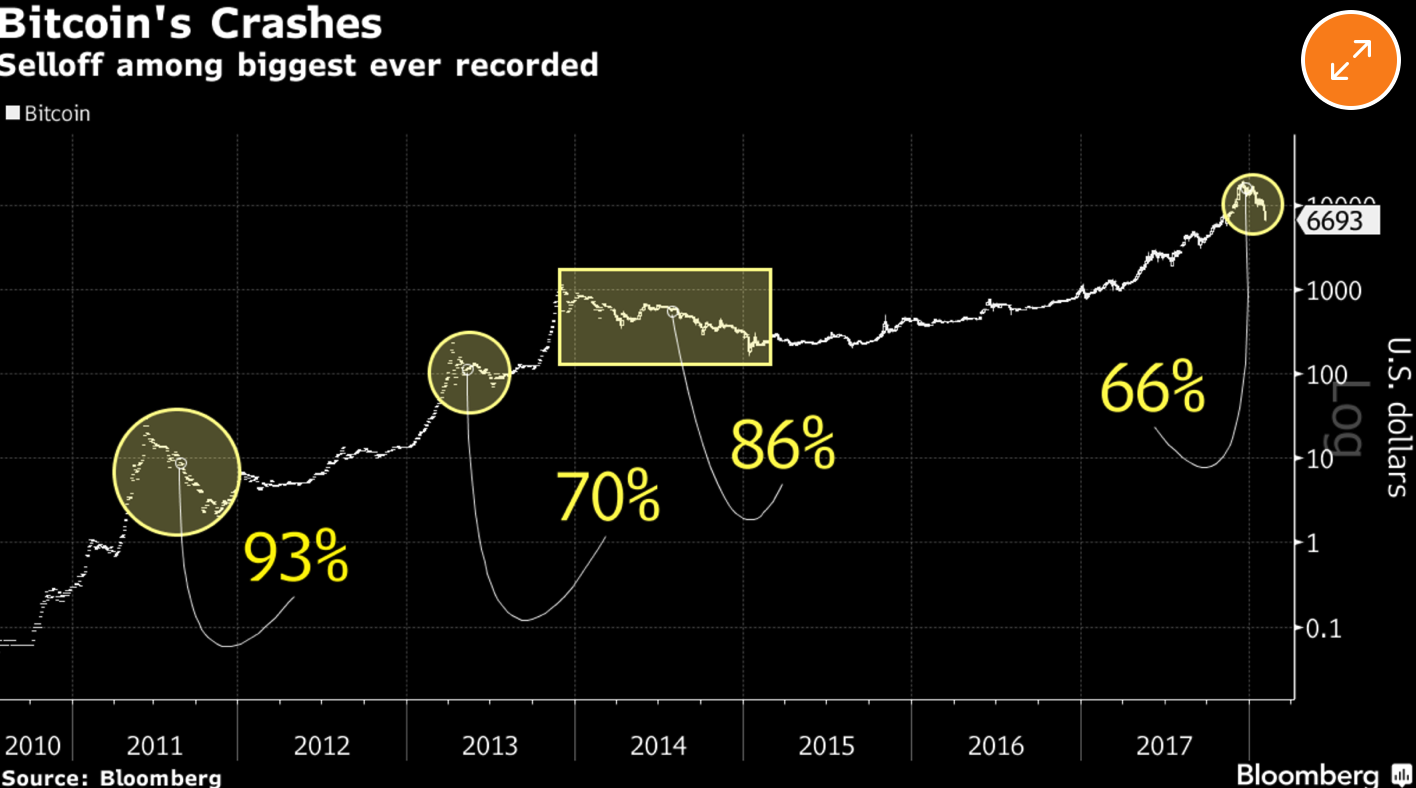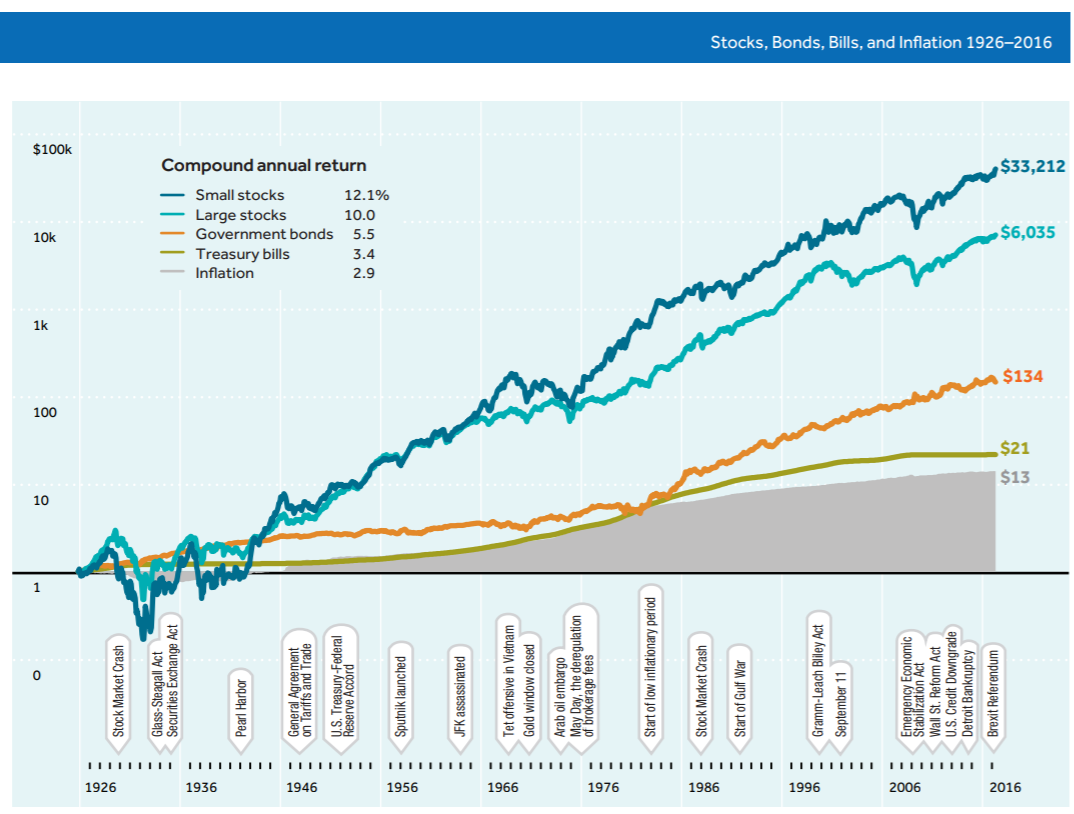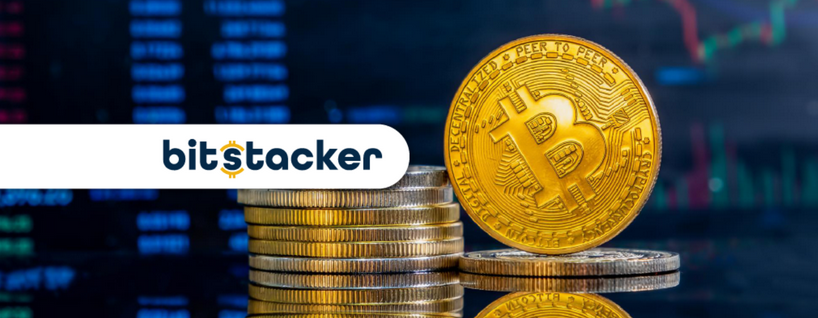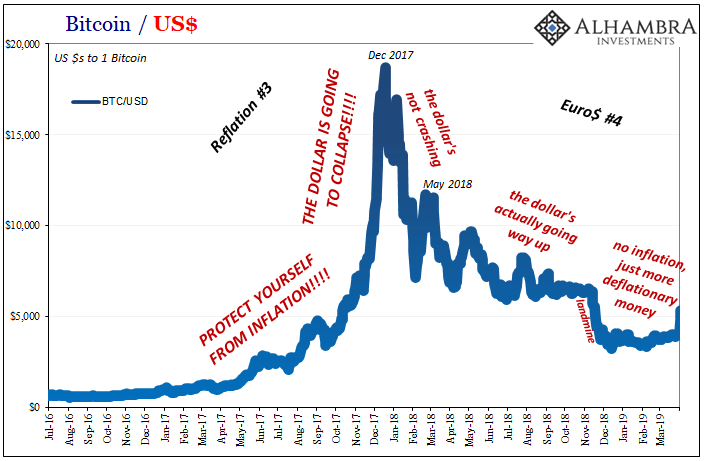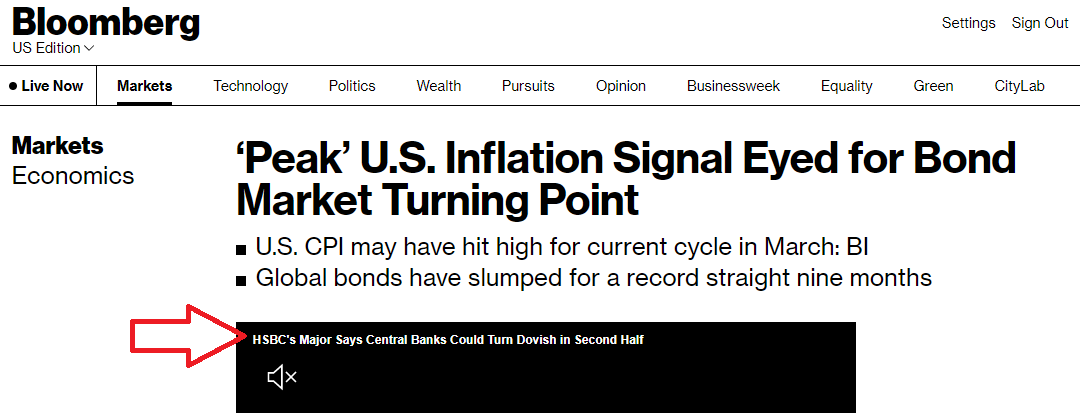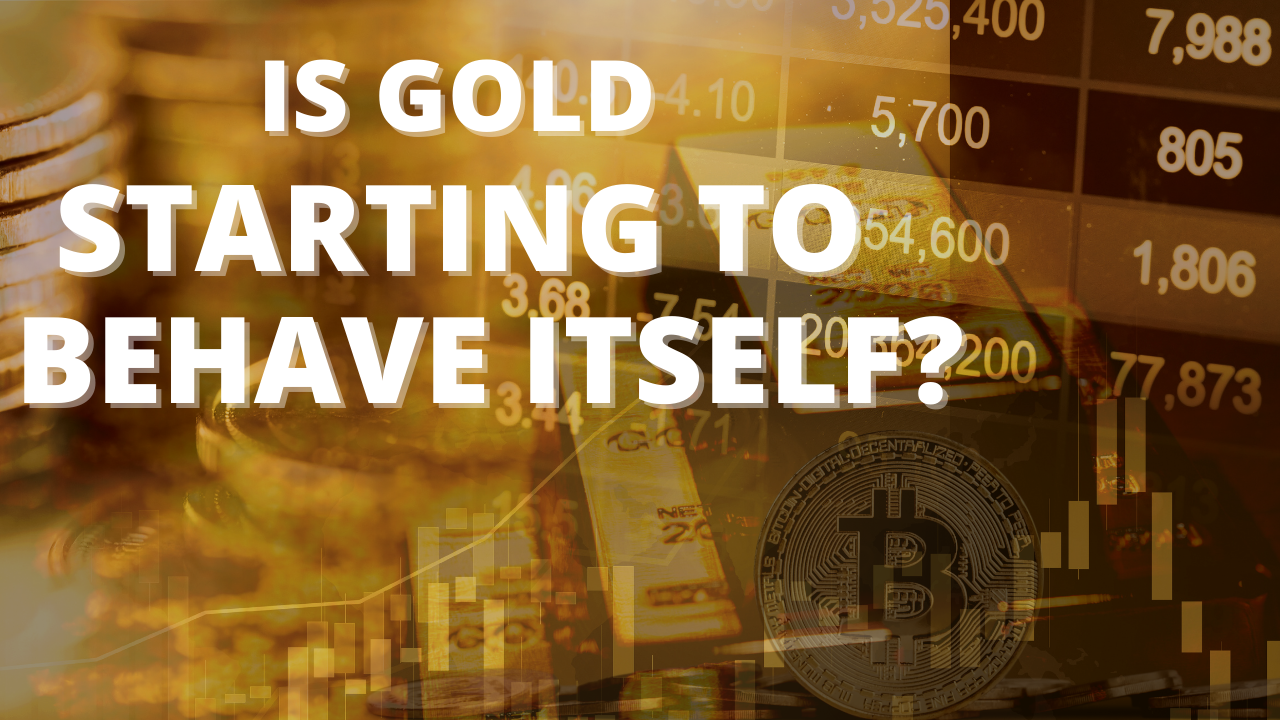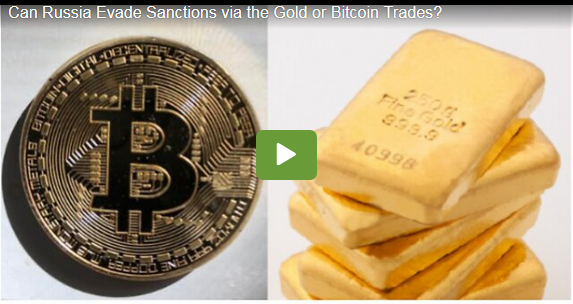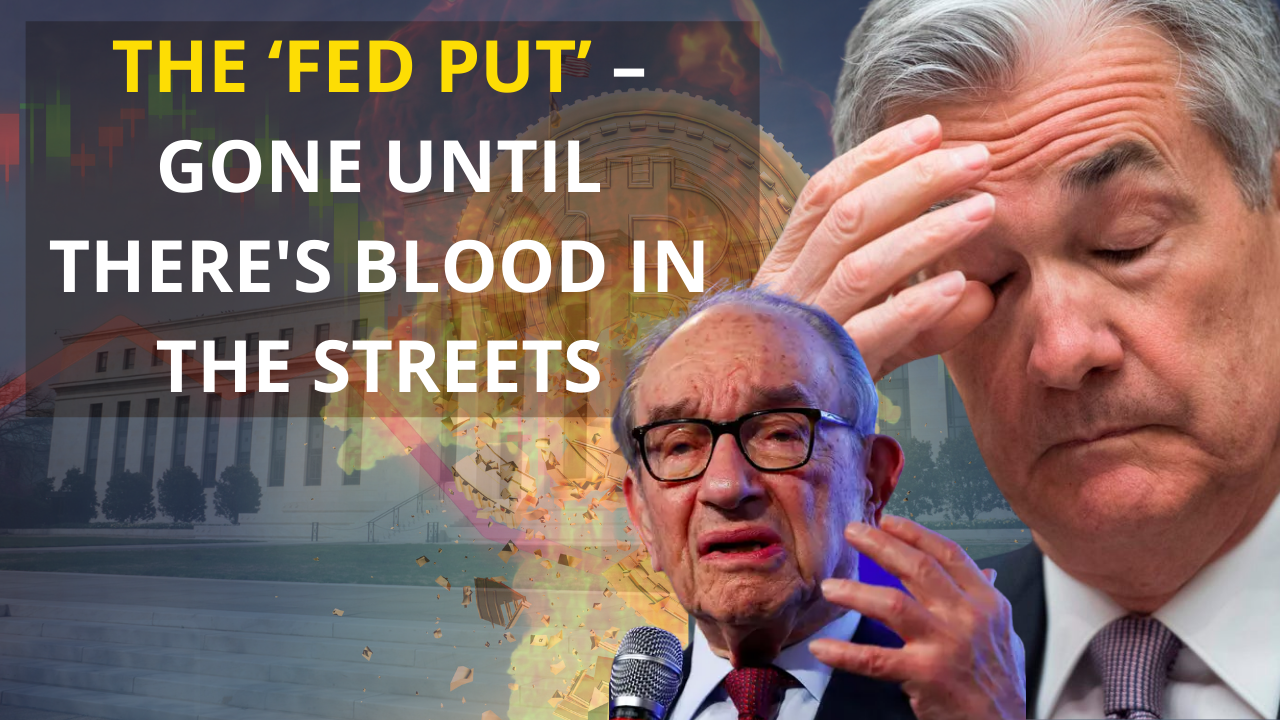Crypto Currency Backlash Sees Flight From Cryptos and Bitcoin
– Bitcoin falls from $20,000 to below $6,000 and bounces back to $8000
– Top 50 crypto currencies lost over 50% of value in 24 hours
– Over $60 billion wiped off entire crypto currency market in 24 hours
– Markets concerned about increased regulation, manipulation & country-wide bans
– ‘Growing global unease about risks virtual currencies pose to investors and financial system’ – SEC
– Gold acting as store of value from “correcting” stock markets & crashing cryptos
– Gold is essentially flat in recent days and building on its 11% gain in 2017
– Offline physical gold is safer than online digital gold
Editor: Mark O’Byrne
| Investors in the bitcoin and cryptomarkets are running scared as prices continued to plunge yesterday before a bounce today.
Top altcoins lost 50% of their value on Monday, bringing the total value wiped off the crypto market in 24 hours to over $60 billion. Monday’s performance is a further kick for a market that has rapidly lost favour since bitcoin touched $20,000 in December. Investors and market participants are being forced to question the stability and security of the crypto currency market which is currently under regulated and prone to be taken advantage of. Meanwhile, the gold price rose Monday and is essentially flat in recent days – building on 11% gain in 2017. Investors began to turn to gold last month, as they began to seek ways to protect their crypto profits. Now, the market is spooked by developments in both price and the wider ecosystem, prompting calls for investors to avoid cryptos altogether. |
Gold Spot and Bitcoin Price, Jan 2018(see more posts on Bitcoin, ) |
Government shutdown
Tougher regulation has been a key factor overshadowing market action, in the last few weeks.
Yesterday Financial News, a service closely associated with the People’s Bank of China, reported that the central bank will block all cryptocurrency and ICO related platforms. Previously it announced the crackdown of domestic platforms, this has now been extended to foreign ones, as well.
“In the future, any related (platform) will be closed as soon as it is found. At the same time, further regulatory measures will be taken with the future development of the situation.” Financial News
The PBOC news follows India’s Finance Minister Arun Jaitley announcement that the government was looking to ‘eliminate the use of digital currencies’. Whilst the country is not a major player in the crypto universe, it does put a spanner in the works for those who were hoping the likes of bitcoin would become adopted globally – either as a global currency or a store of value.
Jaitley stated that bitcoin was being used for ‘illegitimate’ activities and that the country would not recognise cryptocurrencies as legal tender.
“The government does not recognize cryptocurrency as legal tender or coin and will take all measures to eliminate the use of these crypto-assets in financing illegitimate activities or as part of the payment system.” – Arun Jaitley
The severe swings in price combined with security issues have lead many regulators to push forward with deciding how they are going to deal with cryptocurrencies, regardless of how popular bitcoin is in the country. It is also seen a threat to their fiat currencies and existing banking and monetary systems.
| South Korea has been particularly vocal of late, at the end of January the central bank introduced legislation to put more control on speculative cryptocurrency investing, restricting trading to real-name bank accounts.
The world was also watching yesterday as Christopher Giancarlo, chairman of the Commodity Futures Trading Commission (CFTC), and Jay Clayton, chairman of the Securities and Exchange Commission (SEC), gave testimony to the Senate Banking Committee ‘amid growing global unease about the risks virtual currencies pose to investors and the financial system’. Both Chairs are expected to show how their respective agencies have been working to protect investors from extreme volatility, financial fraud and security threats from hackers. Statements are expected to say that cryptocurrencies demand increased oversight and may even require a new federal regulatory framework. |
Bitcoin Price, 2010 - 2018(see more posts on Bitcoin, ) |
Crypto exchange Bitfinex and digital currency Tether have come under scrutiny by the SEC, since early December. The currency is thought to be inflating the price of bitcoin by billions of dollars, supported by the Bitfinex exchange.
The lack of regulatory oversight is prompting many to look into claims of manipulation in crypto currency markets. Along with price volatility banks are now becoming increasingly nervous at their exposure to digital currencies, through the risks their clients are taking.
No credit offered
Spooked by the $44bn drop in value of bitcoin during January, many banks and large organisations have rushed to put cryptocurrency controls in place, in recent weeks.
Lloyds Bank, Virgin Money and US investment banks including J.P. Morgan Chase, Bank of America and Citigroup have all come down hard on credit-card purchases of crypto currency.
The announcements by the US investment banks followed Facebook’s decision to ban crypto currency advertising as it is ‘frequently associated with misleading or deceptive promotional practices’.
Banks and companies are keen to separate themselves from bitcoin, its contemporaries and related activities before regulators begin to clamp down on the market. Currently banks are hugely exposed should customers by cryptos using credit cards, only for the price to then crash.
Bitcoin, cryptos and digital gold are not substitutes for real gold
“In our view, bitcoin and cryptocurrencies more generally are not a substitute for gold. Gold is a tried and tested effective investment tool in portfolios,” concluded the World Gold Council in a recent report.
This is a key statement from one of the leading research bodies for the physical gold market. Since the publication of Nakamoto’s white paper in 2008 it has been inevitable that bitcoin and other cryptocurrencies are compared to physical gold. As a result, the myth that the two are substitutes for one another has been a long-standing one.
Back in January we brought news to you that many early investors in bitcoin, Ripple and other digital currencies were hedging their gains with physical gold:
Unsurprisingly many cryptocurrency buyers or investors have been looking at how they can secure their gains. Since early December and continuing in recent days, we are seeing numerous existing and new clients who had seen massive gains in bitcoin, ripple etc diversifying into physical gold. They have been buying both gold coins and bars, for both delivery and storage.
Bitcoin and the various crypto currencies are digital assets. Most are no more secure in terms of value or pricing than any other form of digital gold, bullion vaulting platform or ETF. However, many of those who choose to hold cryptocurrencies do so for the same reason many choose precious metals – because they wish to diversify and own finite assets (in the case of bitcoin and some other cryptos) outside of the global monetary and financial system.
The problem with crypto currency and digital gold platforms are the regulatory, cyber and liquidity risk that is so prevalent in both markets. Whilst the extremely high returns from cryptos was good for investors in the short-term, the ecosystem is still in the early days. Both digital gold products and cryptos have quite a degree of unappreciated counter party risk. The platform or exchange in effect controls your assets and you are exposed to them, their servers, websites, staff and management – not too mention the antiquated electrical grids and an internet that is vulnerable to shutdowns.
In contrast, physical gold is a long established and highly liquid global market. The largest buyers of physical gold in the world today are central banks.
Those early adopters of crypto currency and spin-offs products such as Ripple and Ethereum should diversify and own a real safe haven – physical gold and offline physical gold is safer than online.
In order to avoid getting stung again, they need to ensure they rebalance and diversify into undervalued assets such as physical, segregated gold and extremely undervalued silver bullion .
Full story here Are you the author? Previous post See more for Next postTags: Bitcoin,Daily Market Update,newslettersent,S&P 500 Index









